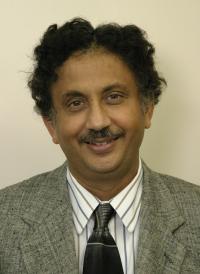Arup K. SenGupta, Ph.D., a professor of civil, environmental and chemical engineering at Lehigh University in Bethlehem, Pa., has been chosen to receive a 2009 Astellas USA Foundation Award.
The award, administered by the American Chemical Society, is given
to individuals who have made significant scientific research
contributions that improve public health through their work in the
chemical and related sciences.
The award includes a $30,000 grant to support his continuing research efforts.
 SenGupta
invented the first reusable polymer-based material capable of removing
arsenic from municipal water supplies and private wells. More than one
million pounds of this absorbent polymer are being used in the United
States and around the world to abate arsenic poisoning through
naturally contaminated ground water.
SenGupta
invented the first reusable polymer-based material capable of removing
arsenic from municipal water supplies and private wells. More than one
million pounds of this absorbent polymer are being used in the United
States and around the world to abate arsenic poisoning through
naturally contaminated ground water.
The World Health
Organization estimates that naturally occurring arsenic in groundwater
accounts for the poisoning of more than 100 million people worldwide.
SenGupta's research offers a sustainable solution to this problem.
SenGupta
earned his B.S. degree in chemical engineering at Jadavpur University
in India and his M.S. and Ph.D. degrees at the University of Houston.
He has been affiliated with Lehigh University since 1985.
Photo: Arup K. SenGupta, Ph.D., Lehigh University, is a 2009 Astellas USA Foundation Award winner.
***
The American Chemical Society is a nonprofit organization chartered by
the U.S. Congress. With more than 154,000 members, ACS is the world's
largest scientific society and a global leader in providing access to
chemistry-related research through its multiple databases,
peer-reviewed journals and scientific conferences. Its main offices are
in Washington, D.C., and Columbus, Ohio.
Source: ACS
 Related EVISA News (newest first)
Related EVISA News (newest first)
last time modified: May 21, 2024